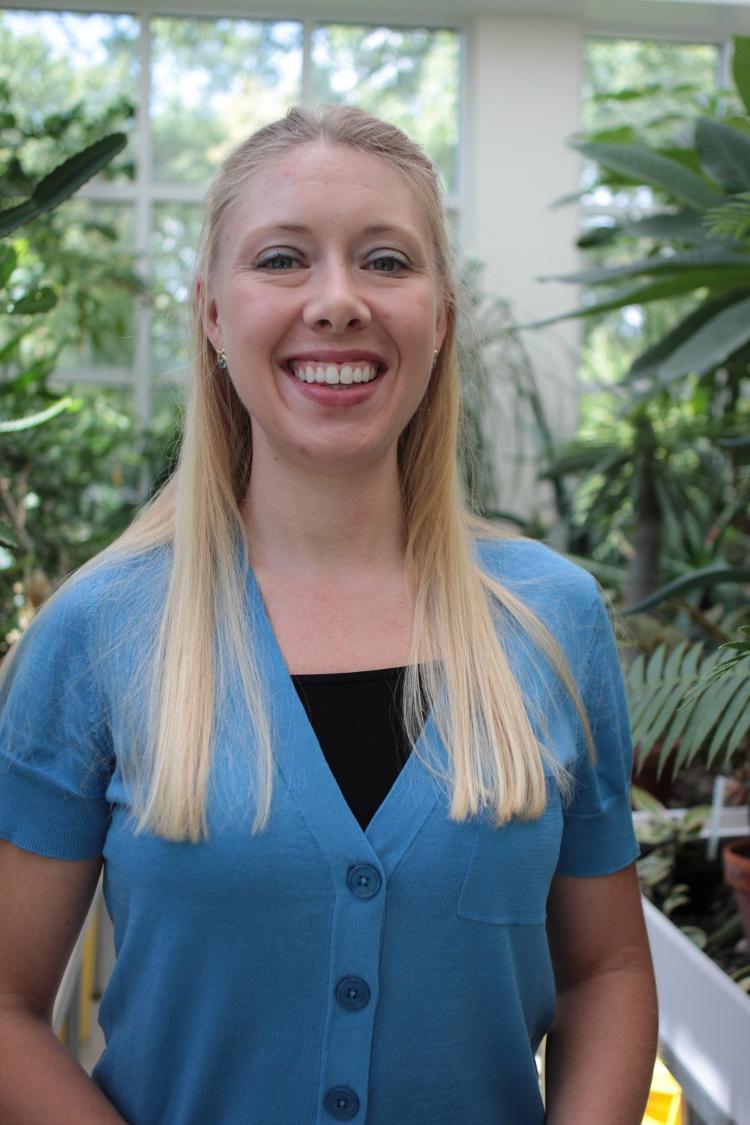

Amorette Barber
Professor of Biology and Director of Student Research
| barberar@longwood.edu | |
| Phone | (434) 395-2726 |
| Department | Biological-Environmental Sciences |
| Office | Chichester 305d |
I am an Associate Professor of Biology in the Department of Biological and Environmental Sciences.
Courses I Teach:
- Introduction to Genetics and Cell Biology- BIOL 250
- Genetics - BIOL 324
- Immunology - BIOL 404
- Biology of Cancer - BIOL 450
- Unifying Biological Principles - BIOL 400
My research focuses on tumor immunology. Current cancer treatments such as surgery, chemotherapy, and radiation result in adverse side effects. Therefore, the development of novel therapies that specifically target tumor cells and minimize damage to healthy cells is desirable. One option is to use cells of the immune system, specifically T cells, which kill cells that appear dangerous or foreign. To maximize tumor cell-targeting by T cells, genetic engineering is used to express receptors that enhance tumor cell recognition. These receptors, named chimeric antigen receptors (CARs), endow the T cell with two properties: 1) they provide a way to recognize the tumor cells and 2) they activate many cellular functions to eradicate the tumor.
My research focuses on studying three specific aspects of T cell immunotherapy: 1) what anti-tumor effector functions are ideal to reduce tumor burden, 2) what proteins (receptors) induce these functions in T cells, and 3) how to incorporate these anti-tumor functions into novel chimeric antigen receptors for therapy. My research lab investigates many tumor types including lymphoma, melanoma, breast, ovarian, liver, colon, kidney, prostate, bladder, and pancreatic cancers. In addition to the applications to human health, my research also investigates the basic biology of how immune cells are activated, and thus has implications in general immunology as well as tumor immunology.
For more information on my research, please see the following recent publications:
(*indicates Longwood University undergraduate author)
*Bergquist B, *Jefferson K, *Kintz H, Barber A, Yeagley A. (2018) Disconnecting the Estrogen Receptor Binding Properties and Antimicrobial Properties of Parabens Through 3,5-Substitution. ACS Medicinal Chemistry Letters, 9(1):51-55.
*Lynch A, *Hawk W, *Nylen E, *Ober S, *Autin P, Barber A. (2017) Adoptive transfer of murine T cells expressing a chimeric-PD1-Dap10 receptor as an immunotherapy for lymphoma. Immunology, 153(3):472-483.
*McQueen B, *Trace K, *Whitman E, *Bedsworth T, Barber A. (2016) NKG2D and CD28 receptors differentially activate mTOR to alter murine effector CD8+ T cell differentiation. Immunology, 147(3):305-320.
*Whitman E, Barber A. (2015) NKG2D receptor activation of NF-kB enhances anti-tumor responses in murine effector CD8+ T cells. Molecular Immunology, 63 (2):268-78.
